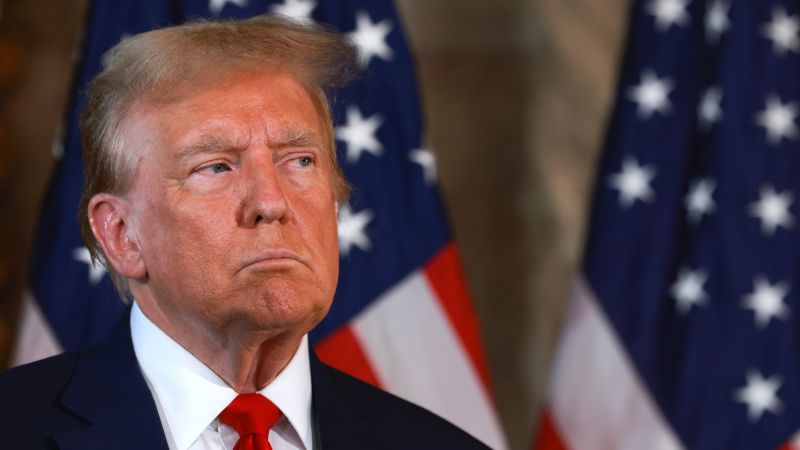Former President Donald Trump is facing his first criminal trial in New York, set to begin on Monday, where he is accused of mishandling classified and sensitive government information stored at his Mar-a-Lago estate. To delay facing more serious federal charges in Florida, Trump has requested US District Judge Aileen Cannon to extend the deadline for reviewing classified evidence in the case. Due to the clash of court schedules, Trump’s lawyers argue that he cannot meet the May deadline as he will be on trial for state charges in Manhattan, potentially lasting into June.
Trump’s primary defense lawyers, Todd Blanche and Emil Bove, are unable to be in two places at once, causing a dilemma for Trump’s legal team. They assert that Trump has a constitutional right to be present at his trial in New York and, as a result, cannot participate fully in the preparations for his defense in Florida. As the trial in New York looms, work on the documents case at Mar-a-Lago has been significantly reduced, with the defense team spending less time on the criminal case over the past six weeks.
Judge Cannon has not yet set a trial date for the case and has few other deadlines on the calendar, complicating the situation further. The sensitive nature of the information handled in the case necessitates extensive discussions between Trump and his legal team in a secure facility in remote Fort Pierce, Florida. In their filing to the court, Trump’s attorneys emphasize the need for an extension to review evidence in a secure facility, a process that requires extensive time and resources that they currently lack during the impending trial in New York.
Federal prosecutors from the special counsel’s office are also pressuring the case in Florida, emphasizing the importance of preparing for arguments over classified records in the defense case. The prosecutors have had the classified discovery for months and expect the defense to be well-prepared to present their case at trial. However, Trump’s lawyers indicate that the special counsel’s office does not agree with their request to push back deadlines for reviewing evidence, adding another layer of complexity to the ongoing legal battle.
Despite the challenges posed by the overlapping court schedules, Trump is determined to prioritize his presence at the trial in New York while managing the mounting legal issues in Florida. The clash of court schedules highlights the logistical and legal complexities involved in defending against criminal charges on multiple fronts. As Trump’s legal team navigates the intricacies of both cases, the outcome of the criminal trial in New York and the implications for the case in Florida remain uncertain, adding to the uncertainty and tensions surrounding the former president’s legal troubles.


